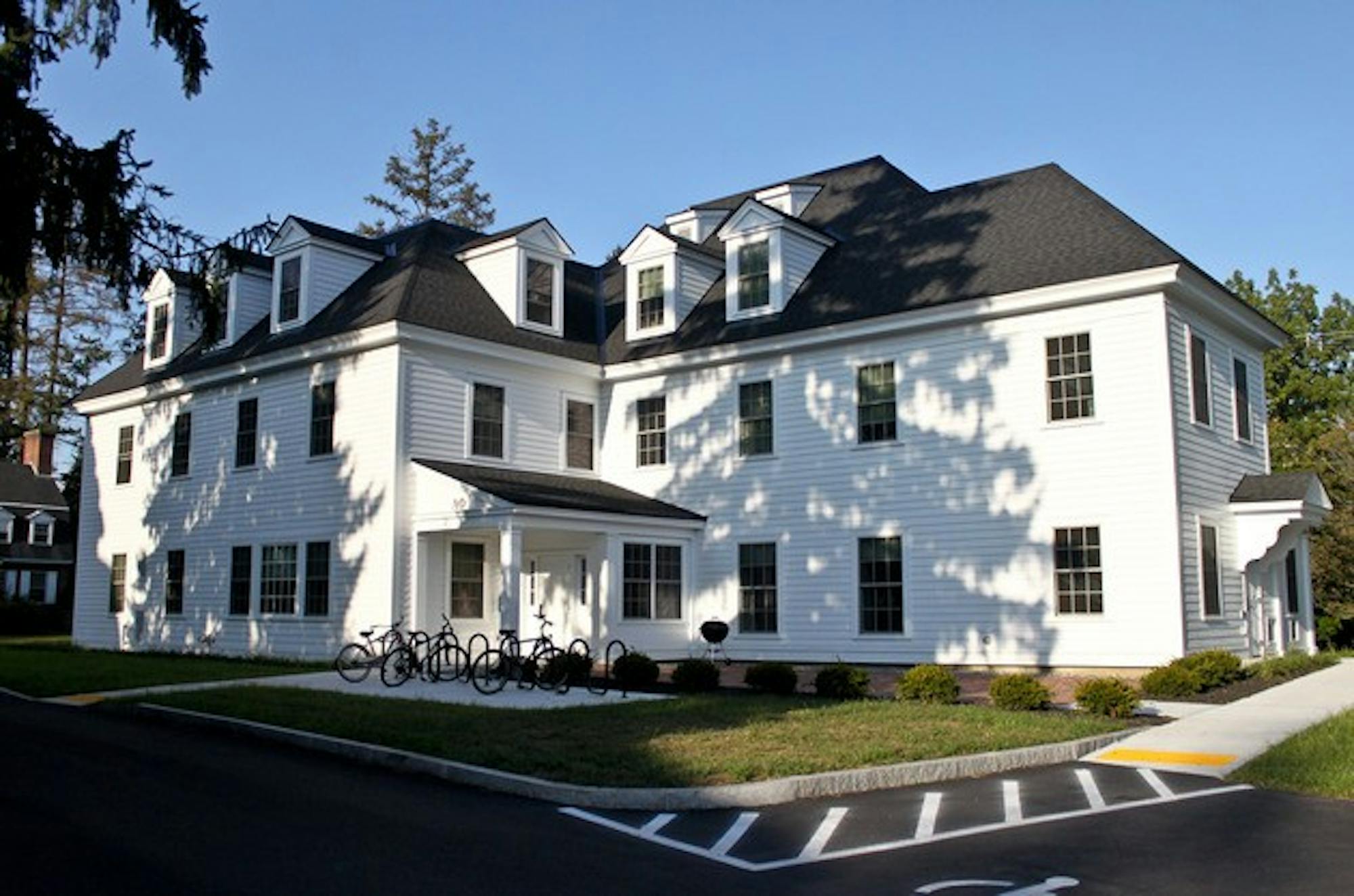The number of Greek houses facing disciplinary action from the College has caused some student leaders to question the effectiveness of the administration's top-down approach to working with the Greek system, according to Greek Leadership Council moderator Duncan Hall '13.
Dean of the College Charlotte Johnson said that administrators and Greek Letter Organizations and Societies representatives have reached out to the GLC to work together toward a "constructive movement forward." Despite the number of Greek organizations confronting sanctions, Johnson said that the College has not changed its policies in handling violations of the College's standards of conduct.
"If there are a cluster of cases involving Greek organizations now, it's more happenstance or coincidence and certainly not because we have changed our stance toward Greek organizations in any way," she said. "Unfortunately, those are the cases that have been processed most recently with respect to those organizations."
Hall said, however, that the administration's recent sanctions are overstepping the College's judicial system.
"I know that the administration is trying to change the culture here, which I think is a good thing, but I think in order to have effective change you need to have the support by and from these student groups because at the end of the day, they are the ones who control the environment," he said.
As a result of the administration's strict policies, Hall said leaders of Greek organizations are considering taking steps to limit accessibility into their houses.
"The open social scene which Dartmouth has loved to boast about will probably be very limited," he said.
New Hampshire state law and the College hold Greek organizations legally liable for any non-members who enter their houses. Hall said that limiting access to fraternities, if voted into effect by Greek presidents, will allow houses to take control of their spaces.
Despite some Greek leaders' concerns with the harshness of recent sentences, representatives from Psi Upsilon fraternity and Alpha Chi Alpha fraternity said they were not surprised by the recent sanctions their houses faced because resulted from repeat offenses.
Psi U was placed on a five-week social probation starting Jan. 28 for hosting an unregistered social event during the Fall term, according to fraternity president Christian Sherrill '13.
The violation was discovered during an unrelated investigation into a supposed hazing incident at the fraternity, which was not proven to be true, he said. The fraternity had experienced a similar incident during Summer term and received a short probation during the Fall.
"I understand why sanctions are fairly harsh this term given that it's a repeat offense," Sherrill said.
Additionally, Psi U was given educational sanctions, which include working with GLOS to improve event management protocols and increase responsibility among individual fraternity members, he said.
Alpha Chi was placed on social probation on Jan. 18 when Safety and Security officers discovered unregistered kegs of beer in the fraternity's basement, Alpha Chi social chair Ryan Collins '13 said.
"Our situation seems a little draconian on the surface, but we've had a number of infractions keg violations in the last few years," Collins said.
He said that the College's policy treats repeat offenses more seriously.
Alpha Phi Alpha fraternity and Alpha Phi sorority are also currently on probation for various infractions of College standards, according to Hall.
Alpha Phi president Lexi Campbell '13 declined to comment and Alpha Phi Alpha president Will Hernandez '13 could not be reached by press time.
OAC placed Alpha Phi Alpha on probation for a period of three terms for violating College hazing and new member education policies, according to the Undergraduate Judicial Affairs Office's termly hazing report. Alpha Phi Alpha is not permitted to recruit new members during the probation period.
Chi Gamma Epsilon fraternity was taken off probation on Sunday following a four-week ban that took effect last term, according to president Will Conaway '13.
The sanctions resulted from a miscommunication between the organization and GLOS regarding the type of event that Chi Gam registered. Safety and Security officers discovered that the house was serving mixed drinks instead of beer, Conoway said.
Alpha Delta fraternity is awaiting a date for an OAC hearing, according to AD alumni advisor John Engelman '68. AD was recently indicted by the Grafton Superior Court on two charges for providing alcohol to minors.
Organizations that are accused of misconduct are brought before one of three OAC adjudicating bodies the student board for minor infractions, the full committee for more serious infractions or an OAC chair if an organization requests an individual hearing, according to dean for campus life Kate Burke.
If organizations are found responsible for an alleged infraction, the OAC considers various factors to determine sanctions, including the nature of the behavior, the organization's disciplinary history and organizational outcomes in general, Burke said.
Probation information is not immediately publicly accessible, according to Nate Miller, director of undergraduate judicial affairs. Probation information is published annually in the Committee on Standards Annual Report. Law enforcement may access probation information through a court order that requires the College to release the information to officials, Miller said.
GLOS director Wes Schaub declined to comment. The presidents of Beta Alpha Omega fraternity and Theta Delta Chi fraternity could not be reached by press time.




